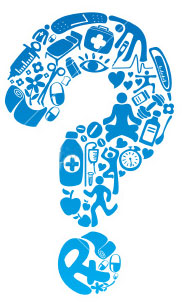 In which I get uncharacteristically industry-opinionated under my own byline for once. I don’t think anything I’m going to say is particularly novel, but it’s all been stewing in my head for some length of time, so I thought I’d get it down.
In which I get uncharacteristically industry-opinionated under my own byline for once. I don’t think anything I’m going to say is particularly novel, but it’s all been stewing in my head for some length of time, so I thought I’d get it down.
- Nestle, makers of milk and chocolate bars, wants to quintuple their $2 billion a year health-sciences division, while they continue to invest in biotechs with similar nutritional products.
- Google is throwing millions at healthcare, from Oscar’s health insurance to Flatiron Health’s data crunching.
- Facebook owns Oculus Rift, the virtual-reality headset that’s being used to make telemedicine to a futuristic new level.
I believe what we’re about to see is Big Pharma becoming the underdog in their own industry.
Tech and CPG companies are coming in, and little startups have the guts to play for big stakes. It’s a lot easier for a small organization to be nimble, and it’s a lot easier for an outsider to be innovative. It’s hard for a big dog to turn on a dime, to be comfortable with failure, to set ego aside.
And the challenges the industry are facing are not ones that Big Pharma has a proven ability to handle yet. In the U.S. at least, we’re still trying to figure out how to handle biosimilars. Drug prices remain under constant attack. Whenever the meaningful-use phase of the Affordable Care Act actually kicks in, it’s at least shifted the conversation to one of outcomes, not scripts. Payers have the power these days. This is all as new to Big Pharma as it is to the new guys.
The old guard has new problems – and a lot more competition and patent cliffs and detractors – than it did when its C-suite executives were coming up through the ranks. So they’re lobbying and cost-cutting and restructuring and spinning off and licensing in. But you can only do so much of that for so long.
In my opinion, the areas to focus on are mHealth, testing for specialized medicine, and rare diseases. These are not obviously rapid moneymakers, so they’re not immediately attractive. They require investment in new verticals. They require new ways of doing business. But they’re what we need.
- The future is one of empowering consumers to maintain their own health, not one of treating passive patients whose health has deteriorated. It’s about disease prophylaxis, not symptom minimization.
- The future is one of figuring out how to help patients not based on odds (as with traditional clinical-trial response rates), but based on pharmacogenomics. It’s about knowing how specific medications will work for a specific individual.
- The future is one in which people who’ve drawn the short straw and have a rare illness are better served. The new “blockbusters” won’t be lifestyle drugs treating common, mild ailments – they’ll address life-threatening conditions that affect thousands, not millions.
I’m not linking out in this post as much as I do. On the one hand, there are very many people saying many of these things, so there are too many sources to list. But on the other hand, I’m assembling my own assertions, and I don’t want to pull anyone down with me.
It’s interesting: I’m used to being opinionated as a ghostwriter. It feels different to do it myself.

